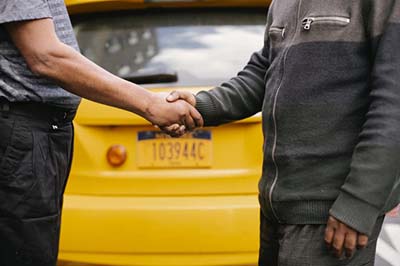Ways to Say “You’re Welcome” in English
Email this page
Intermediate/Advanced Reading Level

Image by Tim Samuel | Pexels
In the lesson about saying thank you, you saw many ways to be polite and show gratitude. When someone says thanks, you should be polite and say something back.
A common way to respond when people say “thank you” is to say “you're welcome” back to them. There are a few more ways to say that.
Formal Ways to Say “You’re Welcome”
Here are some formal ways of responding to “thank you”:
- You’re very welcome.
- I'm glad I could help.
- Certainly.
- Not at all.
- No need to thank me.
Informal Ways to Say “You’re Welcome”
The examples below are listed somewhat from informal to very informal.
Informal
- You’re welcome.
- My pleasure. (for doing something)
- Absolutely.
- Anytime.
- Don’t mention it.
- No problem.
Very informal
- No worries.
- Sure.
- Sure thing!
- No sweat!
Note that saying “no worries,” “sure,” “sure thing,” and “no sweat” are very informal ways of responding to “thank you.” You should use these only in very informal situations or with people you are very familiar with.
Saying “You’re Welcome” after Giving a Gift
If you give someone a gift and they thank you, you can use any of the above expressions or one of the expressions below.
- Please enjoy.
- You’re welcome. I hope you enjoy it.
- I’m glad you like it.
Saying “Thank You” Back
In some situations, you may feel that you should thank people back when they thank you for something. Look at the following dialog:
Marco invites Adele to a dinner party. When Mary leaves, she thanks him.
Adele: — Marco, thank you so much for having me.
Marco: — Sure! Thank you for coming. Thanks for bringing that delicious dessert.
Adele: — No problem. I’m glad you liked it.
In the above dialog, note that Adele said “thank you” and Marco responded “thank you” stressing the word “you.” This is like saying “You’re thanking me, but I should also thank you for coming to my party.” This is very polite.